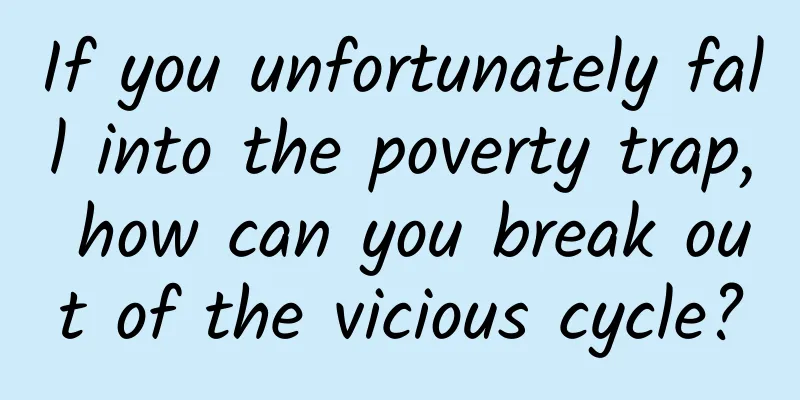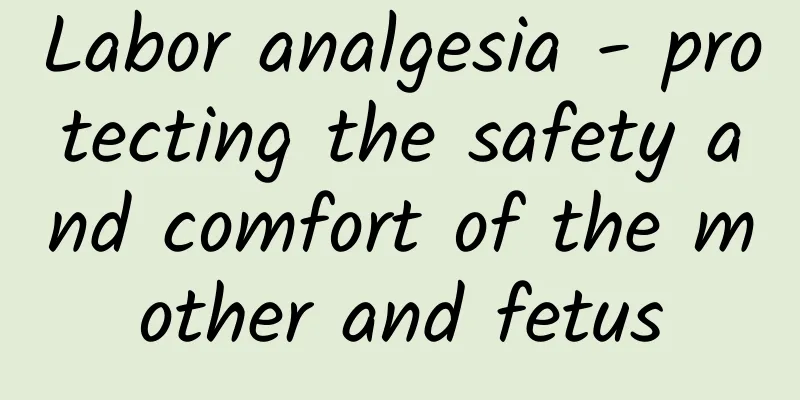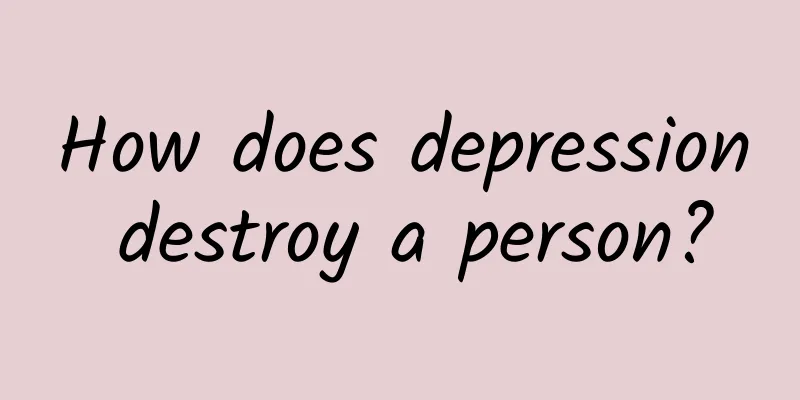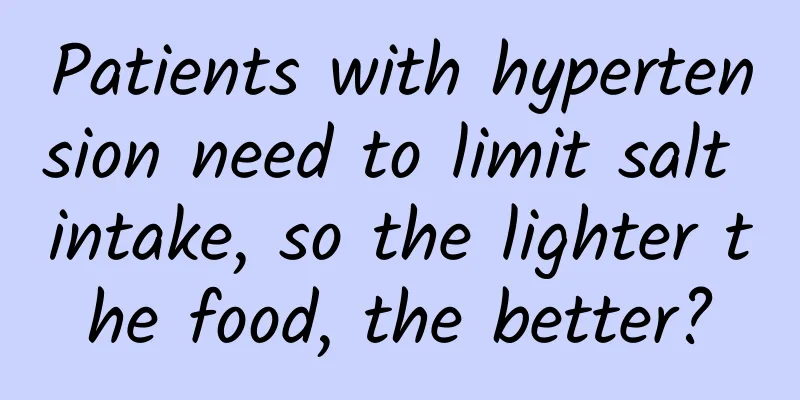If you unfortunately fall into the poverty trap, how can you break out of the vicious cycle?

|
Poverty is like a quagmire, once you fall into it, it is difficult to get out. However, research has found that both financial assistance and psychological intervention can help break this vicious cycle. Image source: medium What is the biggest ideal of contemporary youth? To get promoted, get a pay raise, marry a beautiful, rich and handsome man, and reach the pinnacle of life. But if you are unfortunately trapped in poverty, then… eating dirt is the least of your worries, but becoming a salted fish with no chance of survival is a complete tragedy. But things are so cruel. Recently, an article published in Science magazine revealed that poverty is like a trap that can trap people into a vicious cycle: the poorer you are, the more likely you are to become depressed, and the more depressed you are, the poorer you are likely to become, and finally you will fall into a quagmire. Fortunately, the article also points out that this trap is not unsolvable: with the help of financial assistance or psychological intervention, this situation can be effectively broken. Poverty is like a trap. The poorer you are, the harder it is to escape. |From the Internet The psychological poverty trap that is difficult to escape The psychological problems caused by poverty are obvious. This review article, combining multiple studies, comprehensively explores the bidirectional causal relationship between poverty and mental health. One study showed that within the same region, the lowest-income group is 1.5 to 3 times more likely to suffer from depression and anxiety than the highest-income group. In turn, psychological problems will affect income, exacerbate poverty, and put people in a terrible vicious cycle. This is the so-called psychological poverty trap. As the old saying goes, poverty makes people less ambitious. Financial hardship can make people more susceptible to mental illness. Whether it is a poor harvest or a job loss, the threat of poverty can cause a person to collapse mentally. Without money in your pocket, it is difficult to guarantee a person's basic life, and naturally it is inevitable that you will be exhausted. For example, the homes of the poor are often more polluted, lack air conditioning and heating, and sometimes even a good night's sleep is a luxury. And "misfortunes never come easily", if one thing distracts your attention too much, other troubles may fall like dominoes, making people breathless. Psychological problems can also make a person's economic situation worse. On the one hand, depression and anxiety can occupy people's attention, making it difficult for them to concentrate at work, affecting their work performance and thus directly affecting their income. On the other hand, it can also affect people's way of thinking and beliefs, making them "short-sighted" and unable to make rational decisions in terms of investment and consumption. For young people, they may be afraid to invest in self-education, which reduces their growth space. While poverty limits their imagination, they also lose hope for the future. Poverty makes it impossible for people to have a basic standard of living. | "Slumdog Millionaire" Even more unfortunately, the psychological problems caused by poverty can be passed on between generations. If a person has experienced hard times during their mother's pregnancy or childhood, the chances of suffering from malnutrition will be greatly increased, which may lead to impaired cognitive development and make them more likely to fall into the same predicament as their ancestors in adulthood. But is there no solution to this dilemma? No, there is still a way. Giving money or making people happy can help to get out of trouble. Financial aid: Giving money makes people happier If you want to break the vicious cycle between depression and poverty, you can start by alleviating poverty. If you have no money, the easiest way is to give money. But is giving money useful? Some people think that giving money directly will encourage "laziness" and make poor people accustomed to getting something for nothing. But this is probably a prejudice, and giving money does have a positive side. Some studies have found that financial aid can help low-income people on a psychological level, making them happier, and that this positive impact lasts for a long time. A 2019 study in Indonesia found that in two regions with similar suicide rates, the suicide rate dropped by 18% in the region that received cash subsidies first. The effect of cash subsidies is even more obvious if drought and crop yields have been experienced. This shows to some extent that although there are unexpected events, if effective fiscal policies are implemented in a timely manner, the impact of economic shocks on people's mental health will be much smaller. This is true even in developed countries. In 2012, an experiment conducted among low-income people in Oregon, USA, found that if people received a certain amount of free health insurance each year, their probability of suffering from depression would be reduced by about a quarter within a few months. This is consistent with the fact that in countries with rich social insurance like Sweden, economic shocks have little impact on people's mental health. In addition, the study also found that although the rich are less likely to suffer from mental illness in the same region, overall, the overall incidence of mental illness in wealthy countries is not lower than that in countries with average economic levels. This shows that the psychological poverty trap is based on comparison, and it is not absolute low income but relative poverty that makes people fall into depression and anxiety. In the future, scientists need to further understand the details of how poverty causes psychological problems in order to develop the best policy combination to help people out of difficulties. For example, in this causal chain, if income instability plays a major role, then providing health and unemployment insurance may be crucial; if poor living conditions in early years are the main factor, then providing cash support to parents of young children may be the most effective. Whether it is the unstable income or the childhood poverty that causes psychological problems needs further research. | "Slumdog Millionaire" Psychological intervention: It is easier to get rich when you are in a good mood Getting out of poverty can also be done from a psychological perspective. Since psychological problems can lead to poverty, will a better mood lead to more wealth? It really can. Research has found that simple psychological intervention can help people alleviate poverty. Scientists have summarized a number of studies in developing countries and found that if people are helped to treat mental illness, it may have a positive impact on their employment: their personal labor capacity and income will increase, and their hope of getting out of poverty will be improved. In 2017, lay counselors provided brief psychotherapy to 495 adults with depression in Goa, India, allowing people to engage in activities they like, such as gardening and music, to relieve negative emotions. The results showed that compared with those who received traditional medical care, their chances of achieving remission increased by more than 60% after 3 months - traditional medical care could only increase by 39% - and they could work an average of 2.3 more days per month. For pregnant women with depression, the benefits of psychological intervention may also extend to the next generation. In Pakistan in 2017, 903 pregnant women with depression received cognitive behavioral therapy intervention. Compared with pregnant women who received medical care for immunization and breastfeeding, their depression prevalence was reduced by 17% after seven years. Not only that, these mothers also have more financial power within the family and send their children to better schools. Psychological intervention can make people more hopeful about the future. | "Slumdog Millionaire" Poverty is a global issue, but the mental health of low-income people has rarely been a priority. In many underdeveloped regions, mental health resources are extremely scarce. However, there are still some effective strategies that can meet some of the needs. For example, in Zimbabwe, there are only 13 psychiatrists for a population of 14 million, but there are about 700 trained community grandmothers across the country who are also making use of their spare time. They provide supportive conversations with patients and make an important contribution to their escape from poverty. Strengthen your faith and get out of the quagmire of psychological poverty In today's world, technology is developing rapidly, but humans are not necessarily happier. In fact, whether it is economic growth, technological change or globalization, macro-level development does not necessarily improve people's mental health. The gap between the rich and the poor behind development, the pressure of urban survival, and unemployment caused by industrial transformation may become a continuous cause of psychological problems. In addition, the uncertainty in the world is also increasing, and "black swans" may take off at any time. In the past year, the new coronavirus pandemic has spread around the world, causing countless people to suffer a sharp drop in income or even unemployment, and the poor are the first to bear the brunt. Climate warming is also posing challenges to people. Changes in rainfall have caused agricultural harvests to fail, and meteorological disasters have caused property losses. These will worsen psychological conditions, and extreme high temperatures are more likely to directly aggravate mental illness. Precisely because personal economic conditions and mental health influence each other, strong intervention measures are needed to enable low-income people to escape the psychological poverty trap and move towards a state of sustained income growth and improved mental health. For each of us, even if we don’t have much psychological support and our current life is not affluent, we might as well please ourselves from time to time. Whether it is eating a simple and delicious meal or listening to favorite music for a while, it may inspire us and greet the new day with full energy. As long as we have firm faith, I believe that everyone who is temporarily in trouble can successfully get out of the quagmire. Editor | Chen Tianzhen Editor | Gao Peiwen Reference link: [1] Ridley, MW, Rao, G., Schilbach, F., & Patel, VH (2020). Poverty, Depression, and Anxiety: Causal Evidence and Mechanisms. Science, 370(6522). DOI: 10.1126/science.aay0214 [2] https://www.sciencemag.org/news/2020/12/video-low-cost-interventions-could-help-combat-psychological-poverty-trap The article was published by the public account "Ten Points Science" (ID: Science_10). Please indicate the source when reprinting. |
<<: Why is it easy to feel sleepy while driving? What to do when your eyes are tired while driving
>>: How to drive in the rain? What should you pay attention to when driving in heavy rain?
Recommend
What medicine should be kept at home? Families with elderly and children should keep it!
Many families are accustomed to preparing for a r...
The number one killer of human health
This is the 4717th article of Da Yi Xiao Hu In re...
Why are the dumplings in the restaurant so white? Why are the dumplings in the restaurant so chewy?
As we all know, dumplings are a common type of pa...
How many months of pregnancy is it good to eat pigeon eggs
Many people strongly recommend pregnant women to ...
What famous book is Lian Po from? What classical book is Emperor Minghuang of Tang and Yang Guifei from?
There are many important characters in the Four G...
Is back pain a symptom of early pregnancy?
There are many symptoms that female friends show ...
Steps for removing the gauze after a biopsy
Puncture biopsy is a common diagnostic and treatm...
Backache and chest swelling mean no menstruation
Many people feel uncomfortable before their perio...
Pregnant woman's hands itch
Every pregnant woman is very concerned about her ...
Intermittent pain in the right lower abdomen of women
Some friends will have pain in the lower abdomen ...
How to prevent stretch marks?
Three months after a woman becomes pregnant, irre...
Anal tearing pain after defecation
Many pregnant women choose to give birth naturall...
How many days does it take to detect HPV infection?
Cervical cancer, as the second most harmful kille...









